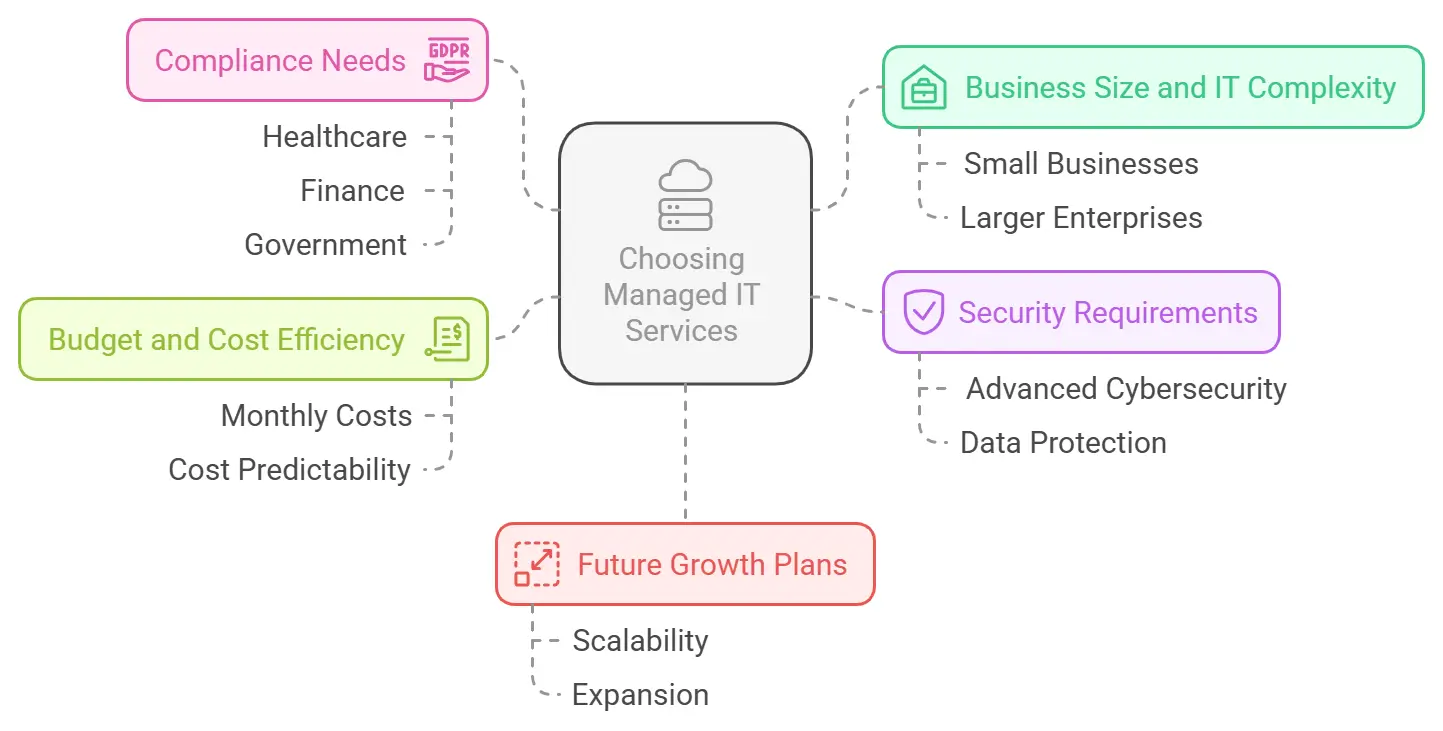
How Different Types of Managed Services Support Business Growth
A 2025 World Economic Forum survey found that 72% of respondents reported an increase in organizational cyber risks, leaving businesses more vulnerable than ever. The need for reliable IT management has never been higher.
Companies struggle with outdated systems, rising cybersecurity risks, and the increasing complexity of IT environments. These challenges can disrupt operations and lead to financial losses for businesses lacking expert support.
Managed IT services solve these challenges, offering expert support that ensures businesses can operate smoothly and securely.
As Kevin White, CEO of TRINUS, states, “Businesses that invest in managed services gain more than IT support. They build a resilient infrastructure that grows with them.” Organizations need secure, scalable, and well-managed IT solutions to navigate today’s evolving landscape.
In this blog, you’ll explore the various types of managed services available and how they can drive business growth. You’ll gain insights into the benefits, drawbacks, and best practices for choosing the right managed services for your needs.
Secure Your Business with Expert IT ManagementProtect your systems, enhance cybersecurity, and streamline operations with TRINUS Managed IT Services. |
What Are Managed Services and Why Businesses Need Them
Managed services involve outsourcing IT functions to a third-party provider. This approach ensures your business gets proactive IT management, strong cybersecurity, and consistent performance.
Companies rely on types of IT managed services to reduce downtime, prevent cyber incidents, and improve efficiency. Instead of handling IT challenges internally, you get access to experts who continuously monitor, update, and protect your systems.
6 Core Types of Managed Services Businesses Use
Managed services offer businesses a range of solutions to address various IT needs. The following sections outline six core types of managed services and how they support business growth:
Managed IT Support Services
Every business depends on technology. When systems fail, productivity suffers. Managed IT support services provide round-the-clock helpdesk support, system troubleshooting, and remote monitoring to prevent issues before they disrupt operations.
- 24/7 Monitoring: Continuous tracking of IT systems ensures problems are identified and resolved quickly.
- Proactive Maintenance: Regular updates and patch management keep software secure and running smoothly.
- On-Demand Helpdesk: IT specialists assist with software, hardware, and network-related issues to reduce downtime.
- Scalability: As your business grows, your IT support scales with it, ensuring uninterrupted performance.
Managed Security Services
Cybersecurity threats are more advanced than ever. 50% of SMBs have been victims of cyberattacks, and over 60% of those attacked go out of business.
Small and mid-sized businesses are frequent targets because they lack enterprise-level security. Managed security services protect businesses by implementing robust defenses and ongoing monitoring.
- Advanced Threat Detection: AI-driven monitoring identifies and mitigates cyber threats before they cause damage.
- Endpoint Protection: Secure all devices, including laptops, smartphones, and IoT assets, to prevent unauthorized access.
- Security Awareness Training: Educate employees on best security practices to prevent phishing and social engineering attacks.
- Regulatory Compliance: Ensure adherence to industry regulations like GDPR, HIPAA, and SOC 2 to avoid legal penalties.
Managed Cloud Services
Cloud technology powers modern businesses. In fact, 87% of businesses have adopted cloud services.
Managing cloud environments efficiently ensures security, accessibility, and cost-effectiveness. Managed cloud services provide businesses with expert cloud management solutions.
- Cloud Hosting: Secure cloud storage solutions for data accessibility from any location.
- Disaster Recovery: Automated cloud backups protect business-critical information from data loss.
- Performance Optimization: Ensure cloud resources are used effectively to support business applications.
- Cloud Security: Protect cloud environments from unauthorized access and data breaches.
Managed Network and Infrastructure Services
Reliable network performance is crucial for business operations. Managed network and infrastructure services ensure IT infrastructure is stable, secure, and efficient.
- Network Monitoring: Detect and resolve connectivity issues before they impact users.
- Infrastructure Management: Maintain and upgrade IT hardware, including servers, routers, and data centers.
- Data Protection: Secure sensitive business information from unauthorized access.
Scalable Solutions: Adapt infrastructure as business demands grow.
| More articles you might like: |
Managed Compliance Services
Regulatory requirements constantly evolve. Staying compliant with industry standards is essential to avoid penalties and security risks. Managed compliance services ensure businesses meet these requirements effortlessly.
- Policy Implementation: Align business IT policies with compliance frameworks.
- Risk Assessments: Identify vulnerabilities and take corrective actions.
- Regulatory Audits: Maintain compliance with government and industry regulations.
- Data Encryption: Secure sensitive information to prevent unauthorized access.
Managed Communications Services
Businesses rely on seamless communication for internal collaboration and customer interactions. Managed communication services streamline voice, video, and messaging platforms.
- VoIP Services: Internet-based phone systems for cost-effective, scalable communication.
- Unified Communications: Integrated email, chat, and video conferencing for seamless teamwork.
- Secure Messaging: End-to-end encryption for business conversations.
- Collaboration Tools: Cloud-based platforms for real-time document sharing and project management.
How to Choose the Right Types of Managed IT Services

Finding the right managed services depends on your business needs.
Consider these factors:
- Business Size and IT Complexity: Small businesses need foundational IT support, while larger enterprises require comprehensive solutions.
- Security Requirements: Organizations handling sensitive data must prioritize advanced cybersecurity services.
- Budget and Cost Efficiency: Managed services provide predictable monthly costs, eliminating unexpected IT expenses.
- Compliance Needs: Industries like healthcare, finance, and government require compliance-focused IT management.
- Future Growth Plans: Scalable IT services ensure smooth expansion as business needs evolve.
Key Considerations When Selecting a Managed Services Provider
Several critical factors can influence your decision when choosing a managed services provider. The table outlines these key considerations to help ensure you select a provider that best meets your business needs:
| Factor | Importance |
| Response Time | Ensure rapid IT support to prevent downtime. |
| Security Measures | Verify if the provider offers advanced threat protection. |
| Industry Expertise | Choose a provider experienced in your industry’s specific needs. |
| Scalability | Opt for services that grow with your business. |
| Cost Transparency | Confirm pricing structures to avoid hidden fees. |
Optimize Your IT with TRINUS Managed IT Services
Investing in the right types of managed services keeps your business secure, efficient, and future-ready. These solutions reduce downtime, enhance cybersecurity, and improve overall performance.
TRINUS has delivered expert IT management for over 25 years, with zero ransomware incidents across all managed clients.
| Reliable Managed IT Services Near You |
| Edmonton |
Our tailored services help businesses navigate complex IT challenges with confidence. Contact us today to discuss your IT needs and schedule a free cybersecurity assessment.



















